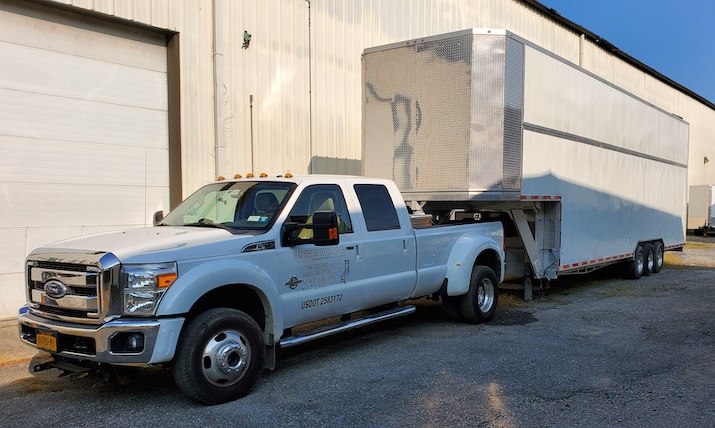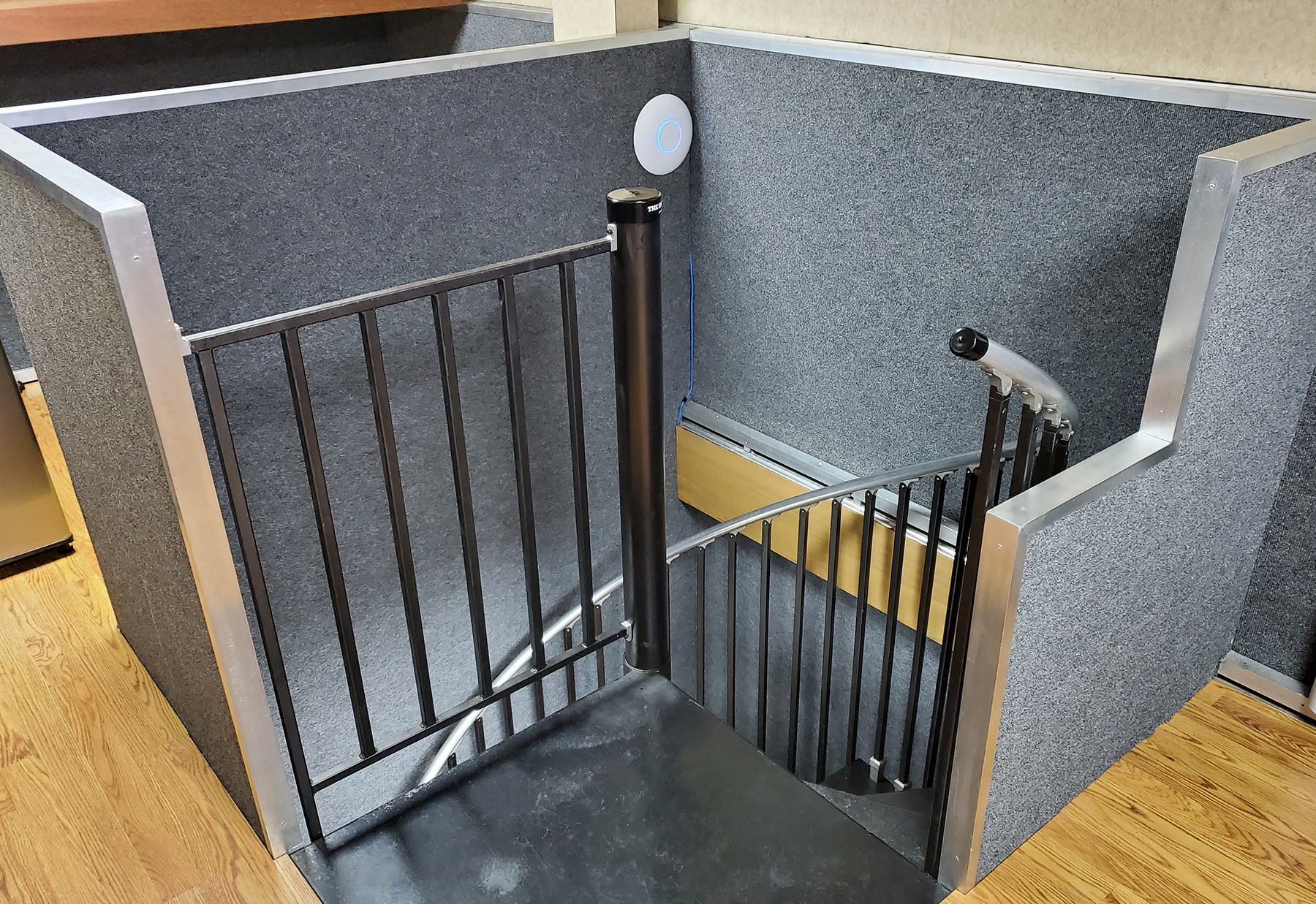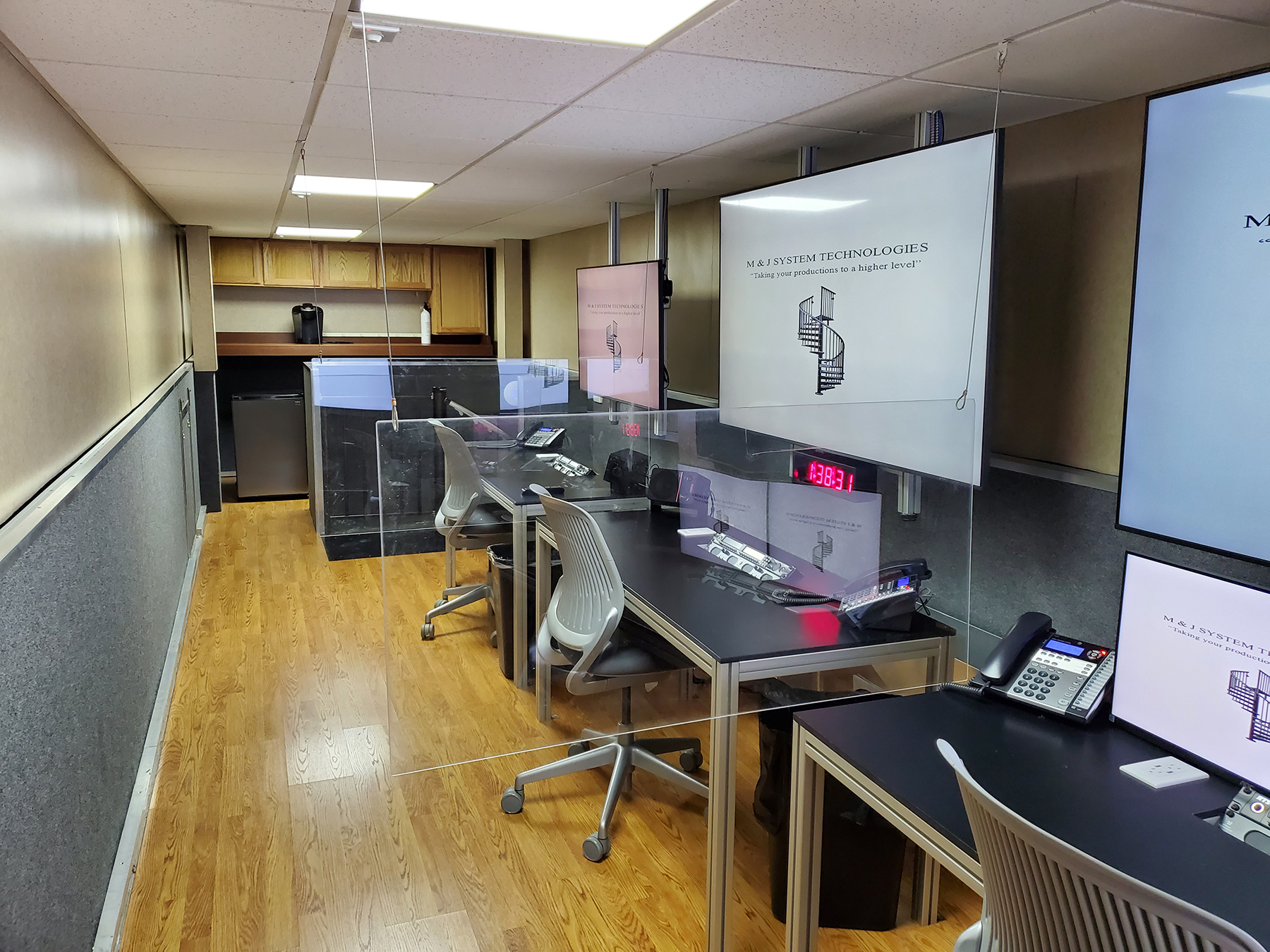Two-Story Mobile Unit Creates Unique Footprint for Live Productions
Towed by pickup truck, the dual-level trailer offers 640 sq. ft. of workspace
Story Highlights
When laid up by an accident, some people might finally get around to reading Moby Dick or learn to play an instrument. Ming Wu, who broke an ankle in a spill from his Honda Goldwing in 2013, decided instead to try to radically alter the architecture of the remote-broadcast truck.
Wu worked as an engineer in Disney/ABC’s System Maintenance & Assembly Group (SMAG) on Manhattan’s West Side and intermittently at its truck depot in Lodi, NJ, for 31 years before retiring seven years ago. Though intimately familiar with conventional expando design, he thought it would be more efficient and effective to go up instead of out.

M&J System Technologies’ BlackLab grows from a 13.5-ft.-tall trailer into a 17-ft.-tall production rig
“A 53-ft. trailer has a big footprint, weighs around 80,000 lb., has noisy air-conditioning, and has a lot of [unproductive] space,” he contends. “My idea was to shrink it to a 40-ft. trailer with two floors. The weight goes down to about 25,000 lb., which means it can be towed by a dually pickup truck and you don’t need a [commercial driver’s license] and it has lower [road and use] taxes. It’s also much easier to maneuver into smaller venues’ docks, so it can go places that large trailers can’t but still provide the same level of capability. And it’s extremely efficient: we have 6 tons of HVAC — 3 [tons] per floor — and we draw less than 10 amps, versus probably 100 amps for a typical production trailer.”
The rabbit in the hat for the unit, nicknamed BlackLab, aka ATL (for Above The Line, a reference to the Hollywood budget term), is how it converts from a 13.5-ft.-tall trailer into a 17-ft.-tall production rig with 640 sq. ft. of workspace and nearly 7 ft. of headroom per floor. A proprietary threaded lift system in each corner raises and supports the second level. On the second floor, such fixtures as video displays and cabinets are attached to the ceiling, which drops 3.3 ft. when the top story is lowered for transport.
“I’ve had engineers here from networks and other truck manufacturers, and they cannot figure out how I did it,” Wu beams.
Inside the truck, the first floor has positions for EIC, A1, show AD, and an announce booth for play-by-play and color commentators. Upstairs, reached through a spiral staircase, are positions for producer, director, replay AD, and graphics coordinator, as well as a galley with refrigerator and microwave.
That last item is more than a convenience. Wu says it helps keep crewmembers self-contained and insulated from COVID contamination, as does the extra room between stations that the second story affords, along with the plexiglass partitions installed between desks.
IP Infrastructure
BlackLab was designed with an AVoIP signal-transport infrastructure. The equipment complement includes an RTS ODIN OMNEO digital intercom matrix with native RVON (RTS Voice Over Network), Dante transport connecting it with a Yamaha TF1 audio console, a Telos HX2 hybrid, and Studio Technologies Model 214 announce package. Video includes a Blackmagic Design 40×40 Smart Videohub and Ubiquiti Dream Pro network appliance and EdgeRouter. The rig is designed to serve as a remote-control room, completely accessible through an internet connection.
“Just connect with a landline, and inside it’s all Cat 5 and Wi-Fi,” Wu says. “Plug and play.”
He built the truck at M&J’s facility in Washingtonville, NY, where he works with his wife and partner, Ju, and partner Jack Kestenbaum, who also was with ABC for three decades as senior audio operator on Monday Night Football and numerous Olympics and Wide World of Sports events and was director, technical operations, at YES Network. BlackLab is sui generis for the moment, built as a proof of concept and as the model for what Wu says could be replicated at scale. He says he has been in preliminary discussions with several unnamed potential buyers and users.
The truck has already worked several gigs, including sports shows in different venues and as the remote-control hub for Intel’s 360-degree 3D replay camera system used in certain MLB and NFL stadiums.
The idea of a production trailer expanding upwards instead of outwards has been floated before, but Wu’s is the first — and so far only — one to come to fruition. It arrives at the right time, he says, given the need to accommodate budget-driven REMI production workflows and the effect of the pandemic in reconfiguring workspaces.
“It’s a solution for all of those things,” he says. “And we’ve already built it.”



